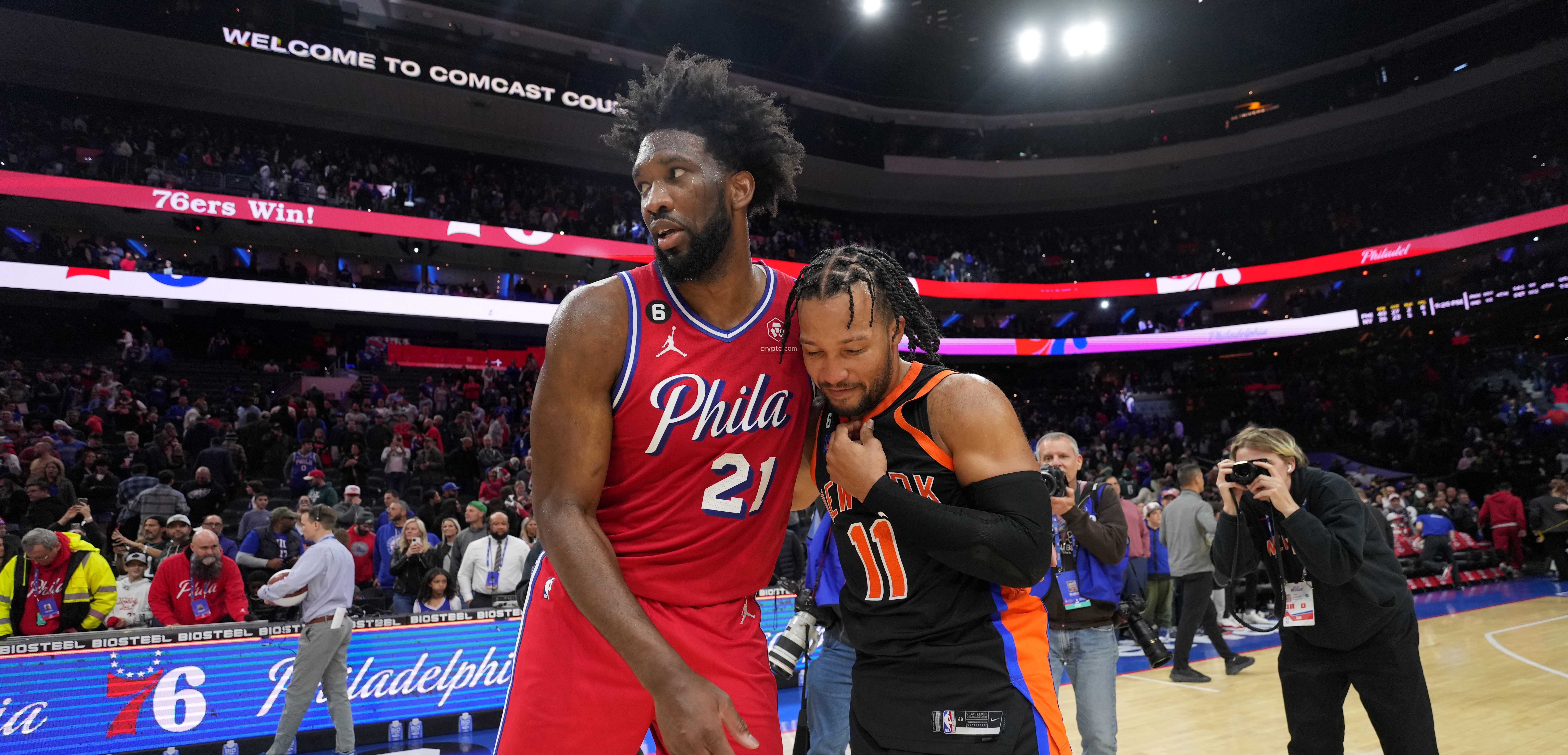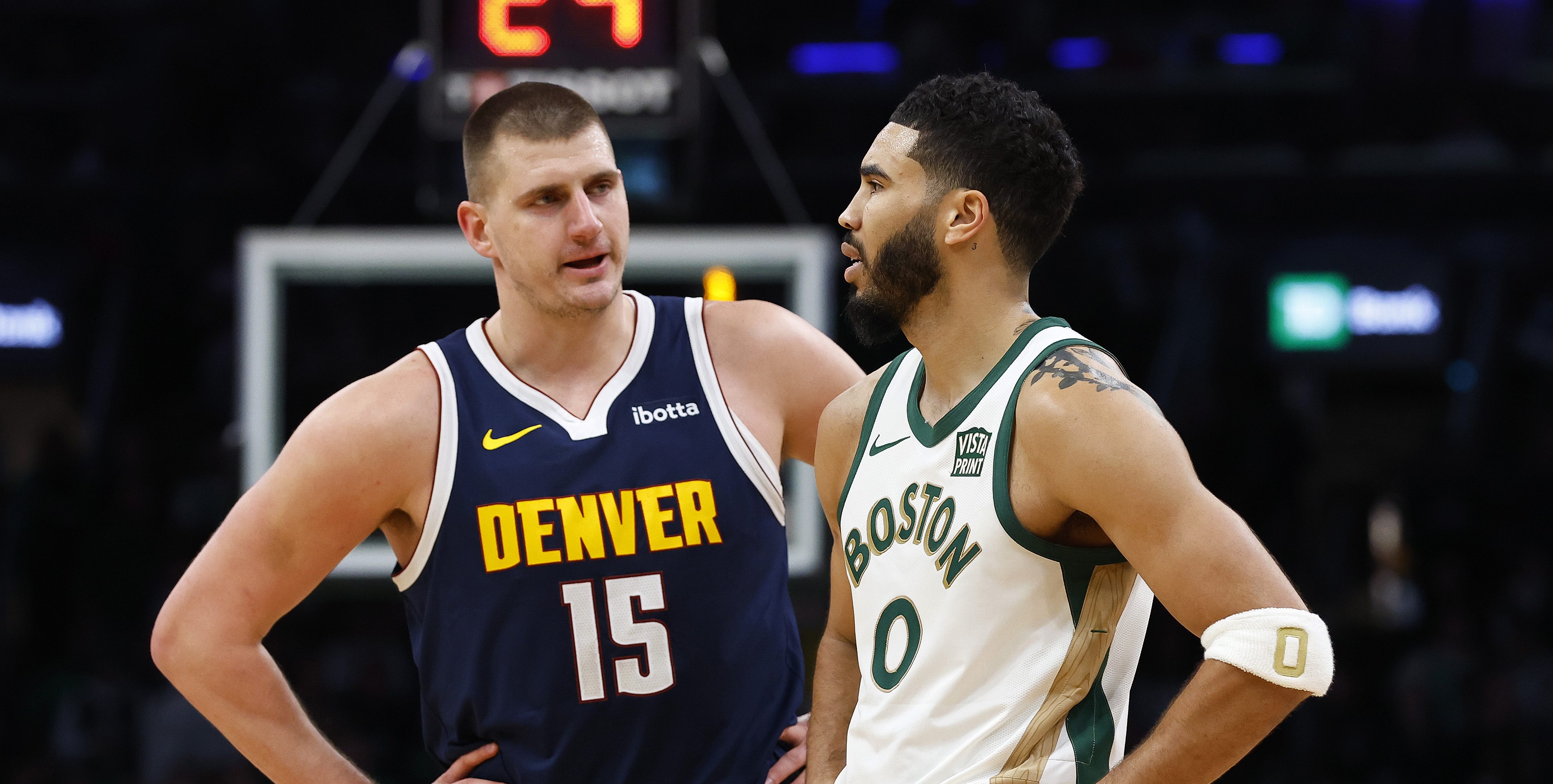A scouting report on NBA draft prospect Miles McBride:
- Position: G
- Height: 6-1 (without shoes)
- Weight: 195 pounds
- School: West Virginia
Miles “Deuce” McBride decided to stay in this year’s draft after two seasons at West Virginia.
Stay in the game with the latest updates on your beloved Philadelphia sports teams! Sign up here for our All Access Daily newsletter.
“Being drafted in the late first to early second round is what I've heard the most,” he told ESPN’s Jonathan Givony. The Sixers hold the 28th pick and could perhaps take McBride, a tenacious defender who shot 41.4 percent from three-point range as a sophomore.
Strengths
McBride plays pesky, high-effort defense on the ball. The comparison to fellow West Virginia product Jevon Carter is obvious. Both are relatively short, sturdy guards who bother opposing ball handlers and love competition.
Though he’ll be undersized for an NBA guard, McBride has close to a 6-foot-9 wingspan and is strong physically. He won’t be pushed around. The 20-year-old’s defensive M.O. isn’t solely getting under people’s skin, though. McBride forced 1.9 steals per game and is happy to play in transition. When he’s in the open floor, he’s good at putting pressure on the defense while keeping his head up and maintaining control.
NBA
McBride’s shooting stroke is simple and well-balanced. He’s comfortable firing both off the catch and off the dribble, and he rises easily into mid-range pull-ups.
It remains to be seen whether he can carry over three-level scoring to the NBA, but it’s encouraging McBride showed that ability in college and improved his overall game significantly between his freshman and sophomore seasons. He can finish with both hands at the rim. Like with Tyrese Maxey as a rookie, McBride might benefit from figuring out how to get all the way to hoop more often and settle for fewer mid-range shots and floaters.
As a decision-maker, McBride is solid. He averaged 4.8 assists and 1.8 turnovers. Though it doesn’t seem he’ll ever be a brilliant or game-changing passer, players who hit the open man and can be trusted not to do anything reckless usually have a leg up when it comes to coaches trimming down playoff rotations.
Weaknesses
McBride’s lack of size could end up limiting his shot creation, as well as his defensive impact and versatility. Will two-guards be bothered by McBride’s scrappiness, or will they just shoot over him without much trouble? If he defends exclusively point guards, he could find himself in a situation where anything other than tremendous defense is insufficient to earn playing time.
It will also likely be important for McBride’s sophomore shooting leap to be legitimate. He only made 30.4 percent of his three-pointers as a freshman and isn’t an incredibly high-volume outside shooter, so it’s unclear if he’s truly elite from long range. For what it’s worth, he made 78.5 percent of his college foul shots.
McBride could be a bit overzealous on defense. Occasional gambling isn’t an inherently negative thing for players with a knack for creating turnovers, but mistakes tend to be punished more harshly in the NBA. Instead of being beaten backdoor and then recovering for a spectacular block, McBride would probably watch a dunk at the next level. Fouls weren’t a problem for him, which is a good sign that he already a decent feel for how and when to curb his aggression.
In a broad sense, we’ll note that no fringe first-round prospect is going to be perfect. If the Sixers snag a player at No. 28 who becomes a rotation piece, they should be pleased.
Fit
If McBride’s shooting and disruptive defense translate to the NBA, he’d certainly be a very nice addition to the Sixers’ bench.
However, especially given the uncertainty about Ben Simmons’ future, the Sixers should not be fixated on fit late in Round 1.


